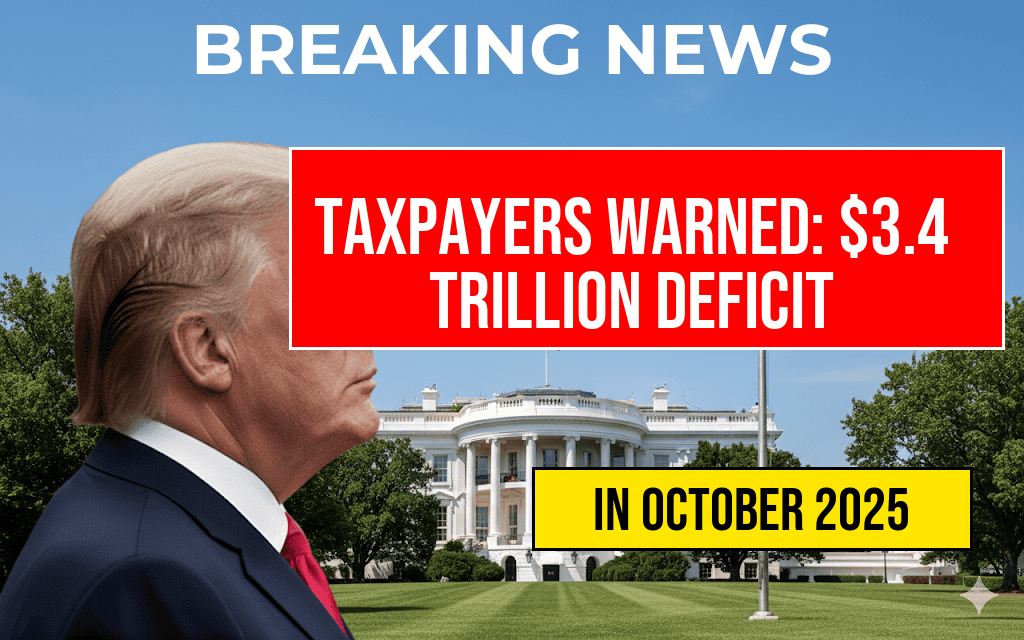Taxpayers across the United States are bracing for potential economic implications as new legislation, dubbed the “One Big Beautiful Bill,” is projected to increase the federal deficit by an astonishing $3.4 trillion over the next decade. This ambitious spending package, which aims to address various social and infrastructure needs, has sparked intense debate among policymakers, economists, and citizens alike. As the bill progresses through Congress, experts are weighing its long-term impacts on the economy and taxpayers. Critics argue that the significant increase in deficit spending could lead to higher taxes and inflation, while proponents contend that the investments are essential for future growth and stability.
Key Provisions of the Bill
The “One Big Beautiful Bill” encompasses a range of proposals intended to enhance social welfare, environmental sustainability, and economic recovery. Some of the key provisions include:
- Social Security Expansion: Increased benefits to support low-income families and the elderly.
- Infrastructure Investment: Billions allocated for roads, bridges, and public transportation improvements.
- Green Energy Initiatives: Funding for renewable energy projects to combat climate change.
- Healthcare Reforms: Expanding access to affordable healthcare services.
Economic Analysis
According to the Congressional Budget Office (CBO), the proposed deficit increase raises concerns regarding the sustainability of federal debt levels. The CBO projects that the national debt could exceed $40 trillion if the bill passes as currently drafted. Economists are divided on the potential outcomes of such a substantial increase in federal spending.
Support for the Bill
Proponents argue that the investments outlined in the bill are crucial for fostering economic growth and addressing pressing social issues. They believe that enhancing infrastructure and social programs will stimulate job creation and improve the quality of life for many Americans. According to a report by Forbes, supporters assert that the initial costs could be outweighed by the long-term benefits of a more robust economy.
Opposition Concerns
On the other hand, critics highlight the potential consequences of increasing the deficit by $3.4 trillion. They express worries that such spending could lead to:
- Higher taxes for middle-class families to offset the growing deficit.
- Increased inflation as the government injects more money into the economy.
- Potential cuts to essential services if the debt becomes unsustainable.
Public Reaction
The public’s response to the proposed legislation has been mixed. According to a recent survey, a significant portion of Americans support the bill’s objectives but are apprehensive about the financial implications. Many taxpayers are concerned about how the increased deficit might affect their personal finances and the national economy.
Next Steps in Legislation
As the bill moves forward, lawmakers will face critical decisions regarding amendments and funding strategies. Key discussions are expected in upcoming committee sessions, where both supporters and opponents will present their cases. The outcome of these deliberations will likely shape the final version of the legislation and determine its impact on taxpayers.
Implications for Future Generations
One of the most pressing questions surrounding the “One Big Beautiful Bill” is its potential impact on future generations. Economists warn that excessive deficit spending could burden younger Americans with increased taxes and limited public services. The long-term implications of this legislation will continue to be a focal point of debate among policymakers and economists alike.
Conclusion
As the conversation surrounding the “One Big Beautiful Bill” evolves, taxpayers are urged to stay informed about its progress and the potential economic ramifications. The proposed increase in deficit spending signals a critical juncture for the U.S. economy, and its outcomes will likely resonate for years to come.
Frequently Asked Questions
What is the ‘One Big Beautiful Bill’?
The ‘One Big Beautiful Bill’ refers to a proposed legislation that aims to implement significant changes in tax policies and government spending, which could have substantial implications for the national deficit.
How much is the deficit expected to increase because of this bill?
The bill is projected to increase the national deficit by approximately $3.4 trillion, raising concerns among taxpayers and policymakers alike.
Who will be affected by the changes in this bill?
The changes proposed in the bill are expected to impact a wide range of taxpayers, including individuals and businesses, particularly through adjustments in tax rates and deductions.
What are the potential long-term effects of increasing the deficit?
Increasing the deficit can lead to higher national debt, which may result in rising interest rates, reduced government spending in other areas, and potential economic instability over time.
Is there any opposition to the ‘One Big Beautiful Bill’?
Yes, there is significant opposition from various political groups and fiscal conservatives who argue that increasing the deficit could have detrimental effects on the economy and future taxpayers.

Leave a Reply